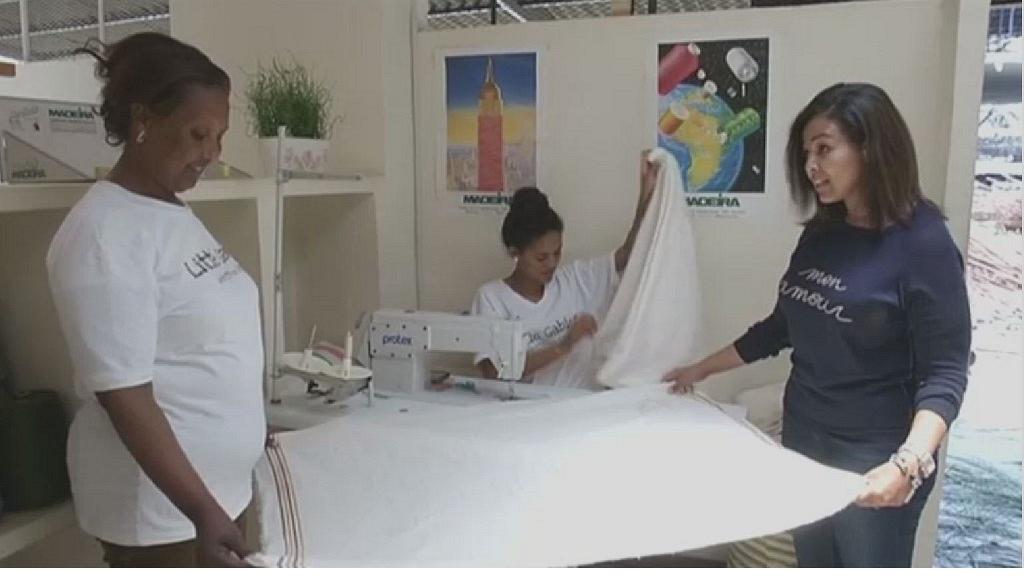Amelsa Yazew inspects finished baby blankets made at her company offices in Addis Ababa, Ethiopia after a morning meeting with her staff.
The entrepreneur runs a brand known as Little Gabies, which produces children’s blankets, all handmade from the country’s traditional Gabi cloth.
The company was started in 2013 after Amelsa had her first child and after struggling to find suitable baby blankets that would not irritate her baby’s sensitive skin.
Little Gabies sells the blankets, clothes and a variety of baby accessories at their store in Addis.
The blankets come in over 20 embroidery designs, done in various colours.
“A little gabi is basically a little blanket made from cotton. It is handmade that goes through seven different people from beginning to end. We pick the cotton first, and then it goes to the spinners and they spin it, and then it goes to the weaver,” she said.
The Gabi cloth which is generally done in white is widely worn in Ethiopia and Eritrea. They often have bands of various colours and also come in various textures.
Amelsa uses organic cotton for her products, she says she ensures her business manufactures handmade products from the start to finish with little help from machines.
The business employs 30 people from spinners to weavers.
“We contribute 50 birr (2.2 USD)a week to a money saving scheme from the pay we get from here. The rest we use for our expenses. We pay rent and buy stuff for the children. I have one child,” said Tadelech Tesfaye,a spinner.
Making a single gabi takes two days. Amelsa said her business is growing fast and she hardly meets demand for her products, which are also sold in high end baby boutiques in Norway and the United States.
Little Gabies products sell for between 20 and 150 U.S. dollars.
“What is unique about this is that we have never seen a product like this before. Up to now we use factory made fabrics imported from abroad. These are 100% cotton and hand made through traditional weaving techniques,” said Ruth Girmay, a customer.
The Gabi has been preserved as an important part of Ethiopian culture for decades and is now being adopted by businesses for a modern market at home and abroad as it continues to provide jobs for millions across the country.
Source: Reuters



